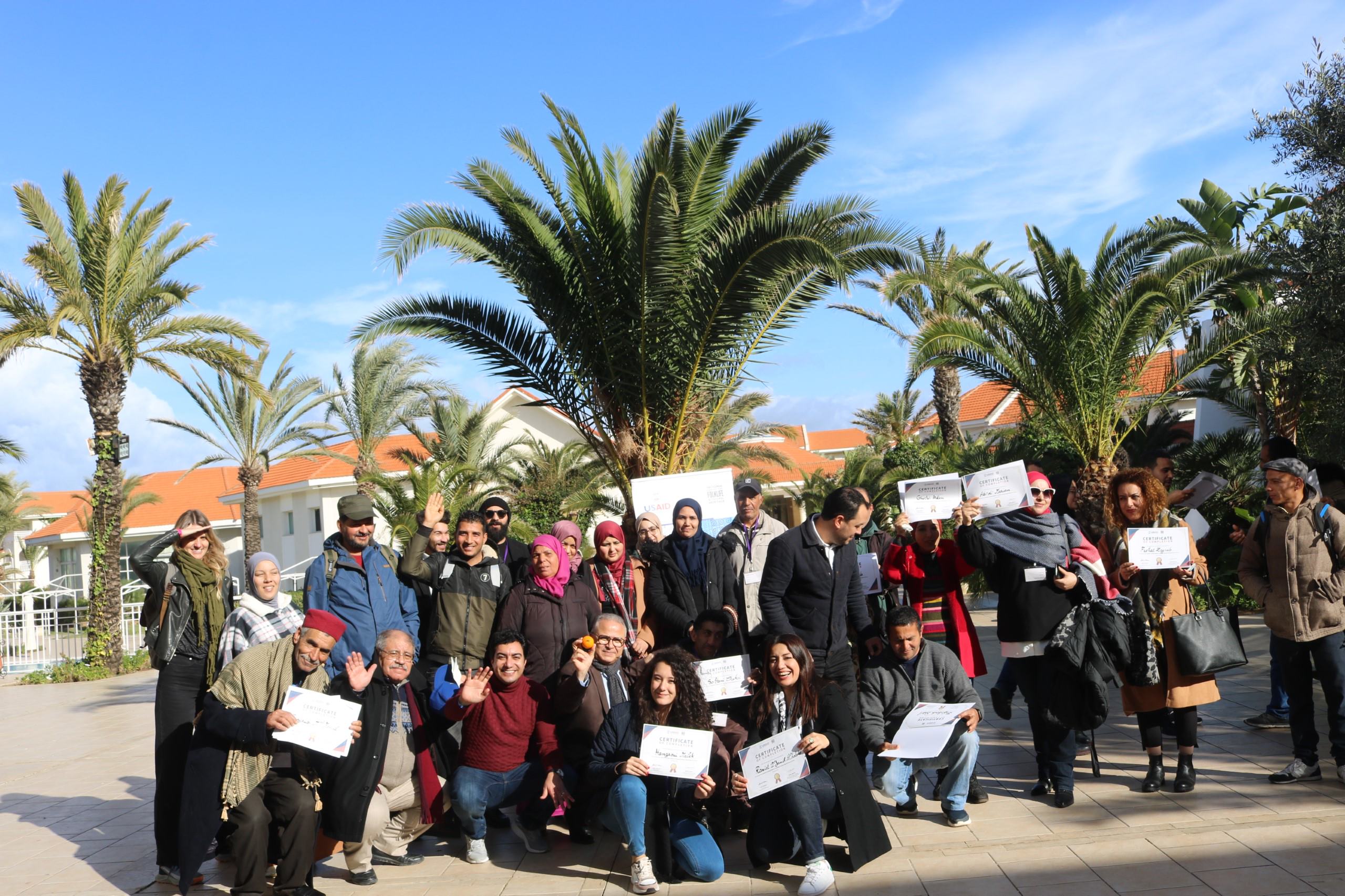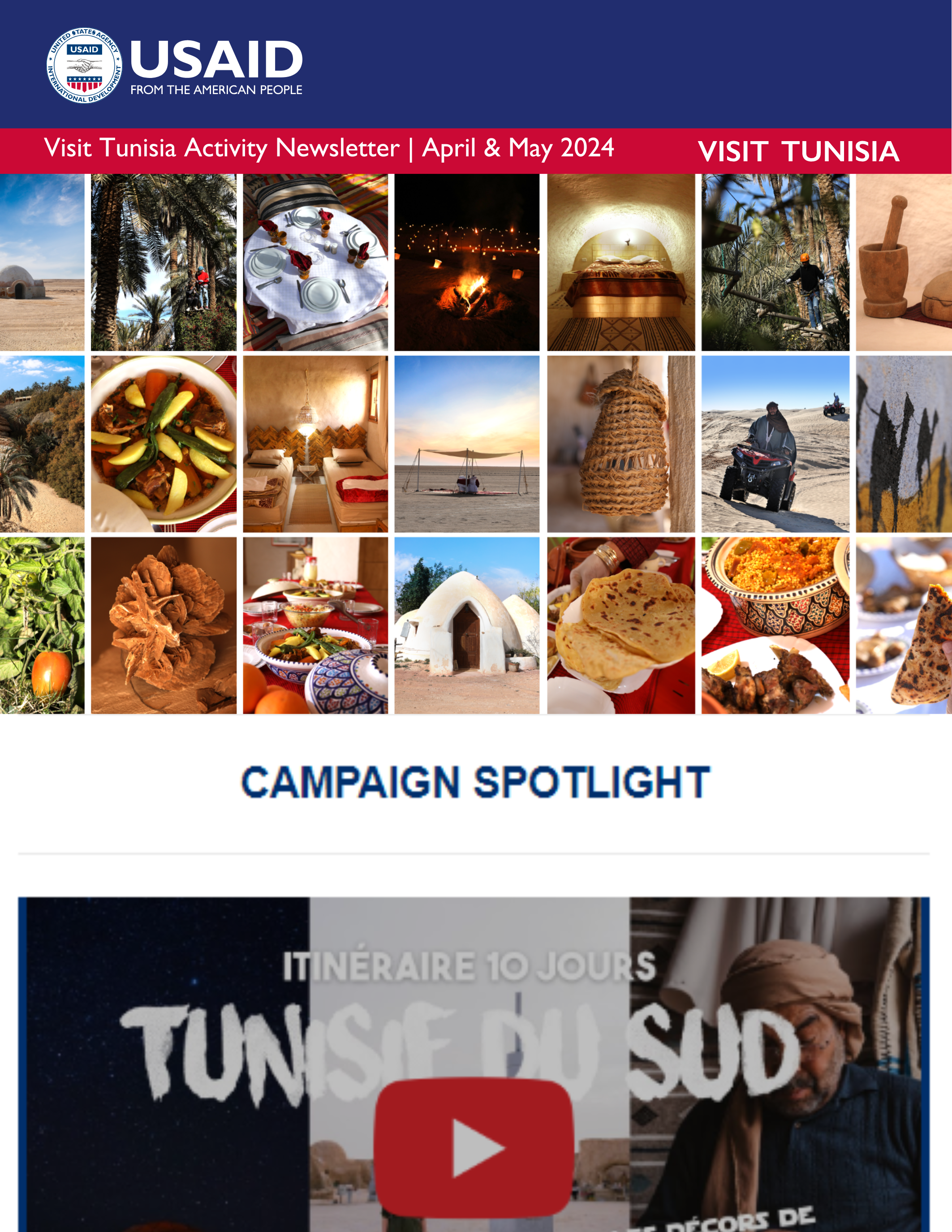In partnership with the Smithsonian Center for Folklife and Cultural Heritage, the USAID Visit Tunisia Activity implemented workshops in Gabes, Kairouan, Tozeur and Tabarka with over 280 tradition bearers – artisans, cooks, musicians, and others who keep Tunisia’s cultural practices alive from one generation to the next — to create touristic experiences around artisan craft, foodways, fishing and agriculture, music and dance, and storytelling. 30 key experiences will be selected among the participants for intensive market readiness and grant support.
Engaging over 280 artisans in Tunisia’s Living Culture workshops
Tunisia's Living Culture is a tourism product development initiative, designed by USAID Visit Tunisia Activity in partnership with the Smithsonian Center for Folklife and Cultural Heritage. While Tunisia has rich and diverse cultural heritage and thousands of heritage sites, its living culture is not experienced in the current tourism offer. Recognizing the Tunisia's wealth of tradition bearers - the individuals who keep a cultural practice alive from one generation to the next - Tunisia's Living Culture (TLC) aims to bring these individuals and their communities into the tourism supply chain. TLC combines research, training and one-on-one mentorship to establish new, market-ready cultural heritage tourism experiences and share them with the world through domestic and international marketing campaigns.
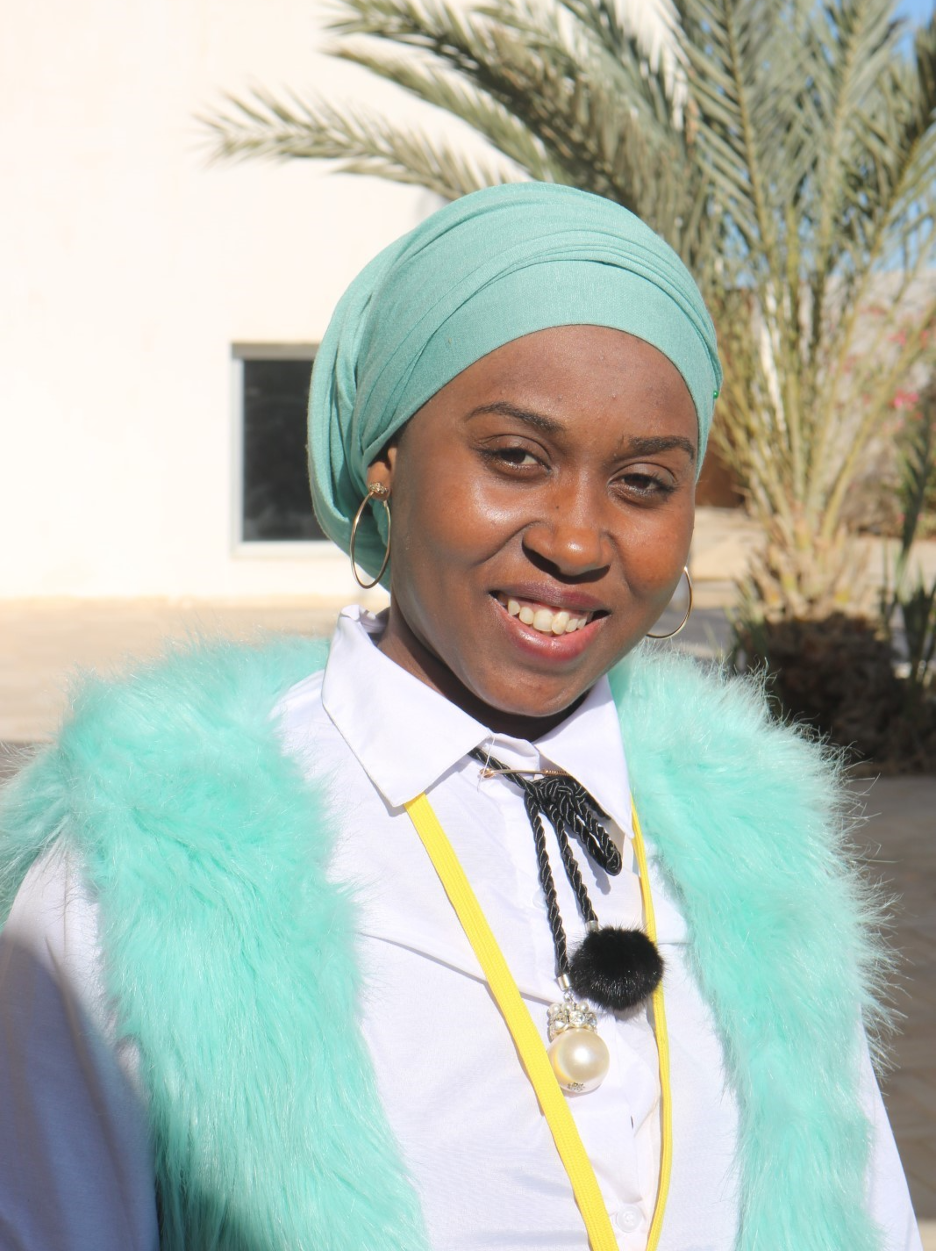
The objective of “Creating Tourism Experiences” training was to introduce tradition bearers to the tourism sector. The workshops kicked off with an overview of cultural heritage tourism and key definitions and examples of cultural heritage tourism experiences. Participants learned the difference between passive, interactive and immersive tourism experiences, and explored best practice examples that combine demonstration, hands-on activities, and storytelling. These discussions were followed by exercises that took the participants through each step of creating their very own tourism experience. By the end of the workshops, each participant developed a stronger grasp of what it takes to engage in the tourism sector, and what they personally could offer.
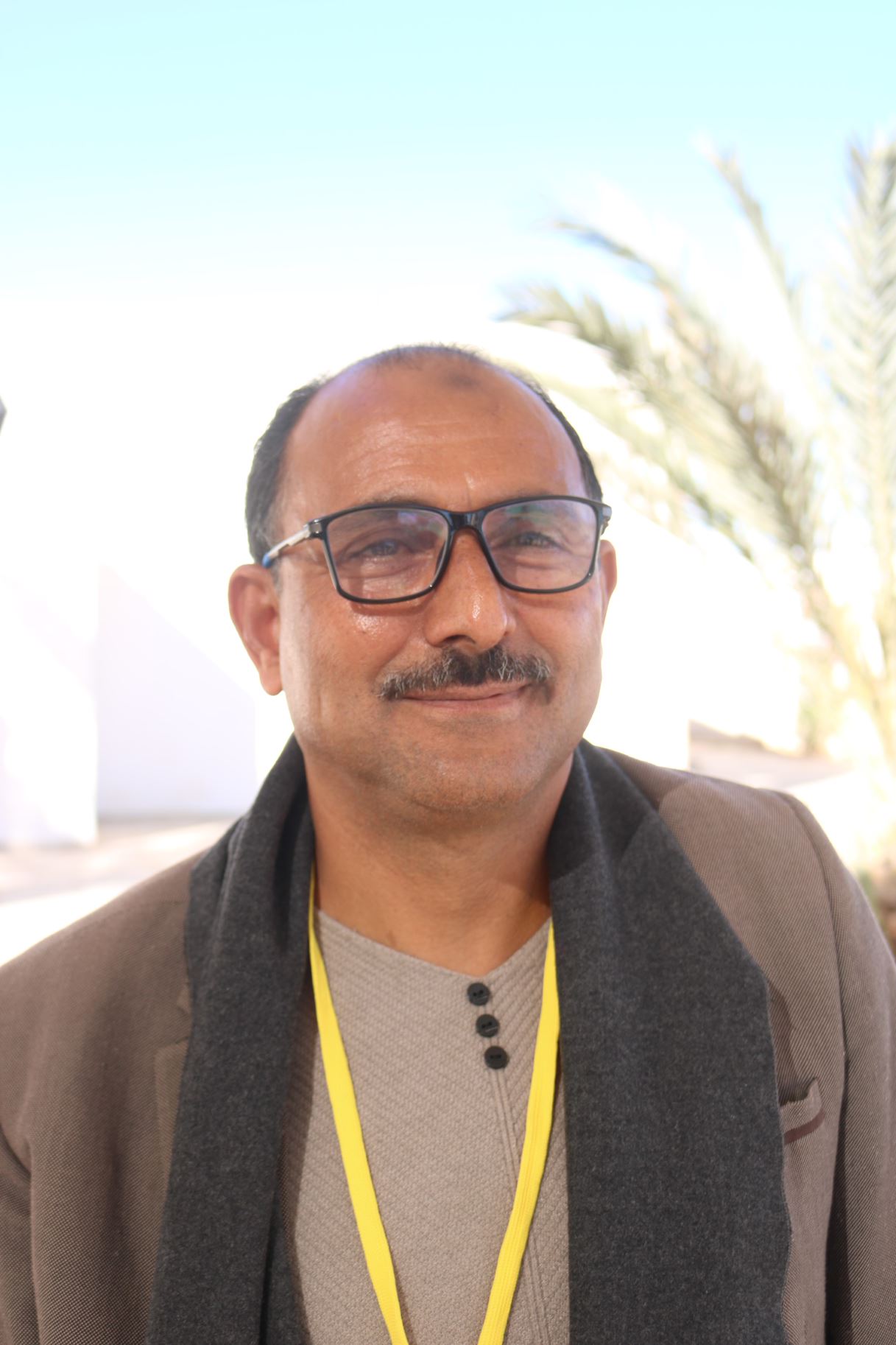
The two-day training generated enthusiasm and exceeded our initial target of 200 by 80 participants. Key stakeholders took also part in some of the activities. During the final workshop in Tabarka for instance, the Minister of Tourism made a visit, greeted and encouraged the participants. Representatives of the Ministery of Culture (AMVPPC) and the National Heritage Institute (INP) also participated as observers.
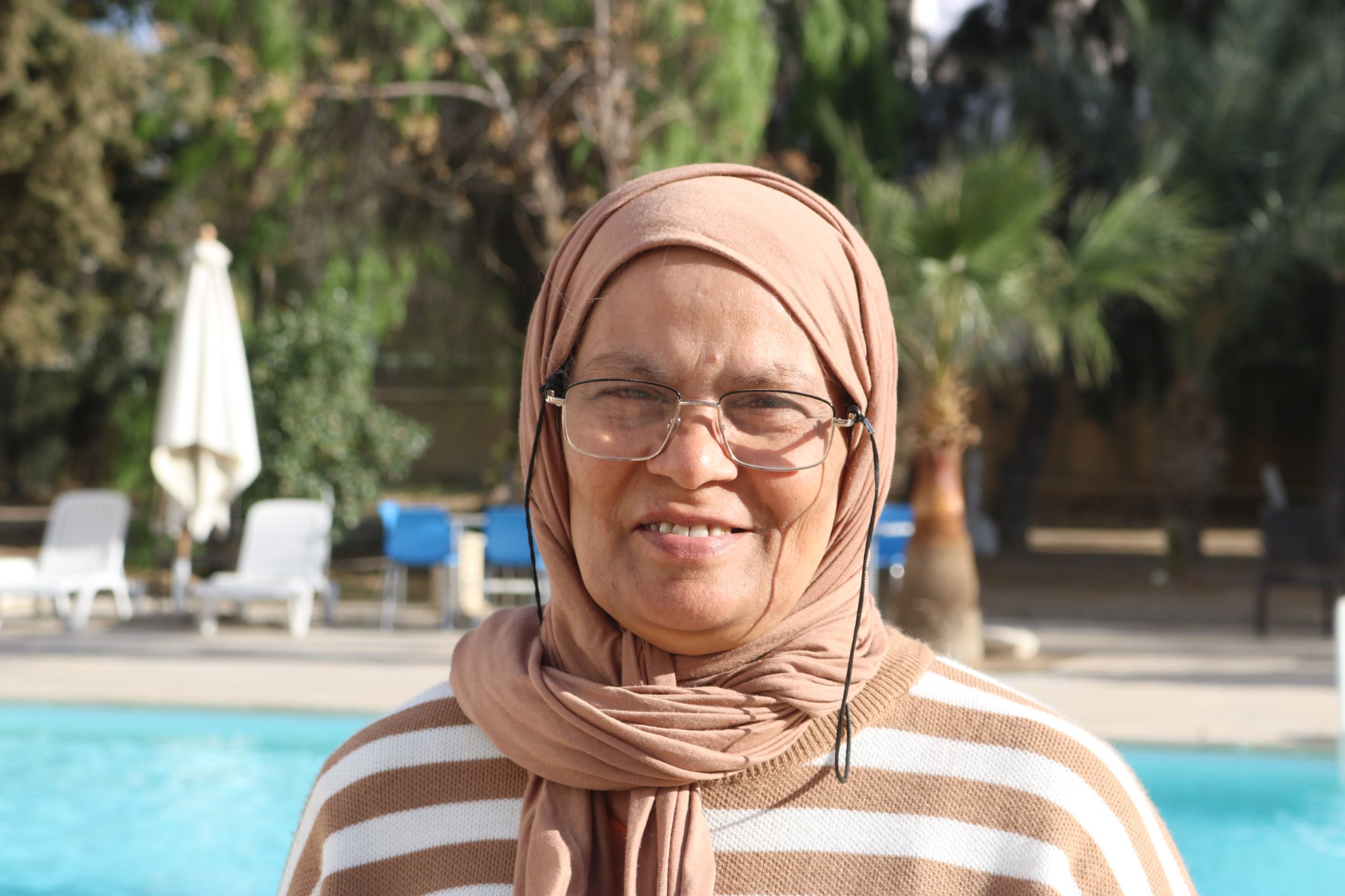
Five Key Takeaways from “Creating Tourism Experiences” Workshops in Gabes, Kairouan, Tozeur and Tabarka
The workshops on how to create a tourism experience over the four locations provided interesting insights for both the participants and the implementation team. Here are the five main takeaways:
- Tunisia has a lot of cultural diversity. From north to south, the coast to the interior, Tunisia's living culture is as diverse as its landscapes. Including this diversity of cultural heritage in the tourism offer will contribute to a shift in recognizing Tunisia as a world-class cultural heritage destination.
- Immersive, experiential tourism is a radically new concept in Tunisia. It was a major shift in mindset for workshop participants to understand that their knowledge and skills have value beyond the creation of products. Once they understood this, they were extremely motivated and excited about the opportunity.
- Artists and artisans are eager to learn new ways to engage in tourism. Participants spoke about the value of tourists for their businesses and recognized the relationship between tourism markets and their livelihoods.
- Good humor and hospitality are in steady supply in Tunisia. Workshop participants shared their creativity with a healthy dose of humor - a good laugh is an excellent way to connect despite language barriers. Our workshops were filled with spontaneous performances of song, dance and poetry.
- It's going to be hard to choose from the participant concepts. In each location of the workshop, participants completed worksheets with descriptions of their proposed experiences. As our team worked on the concepts with the participants, we felt excited by the creativity and diversity of ideas. It will be hard to choose, but without a doubt, the final selection of experiences will be top notch.
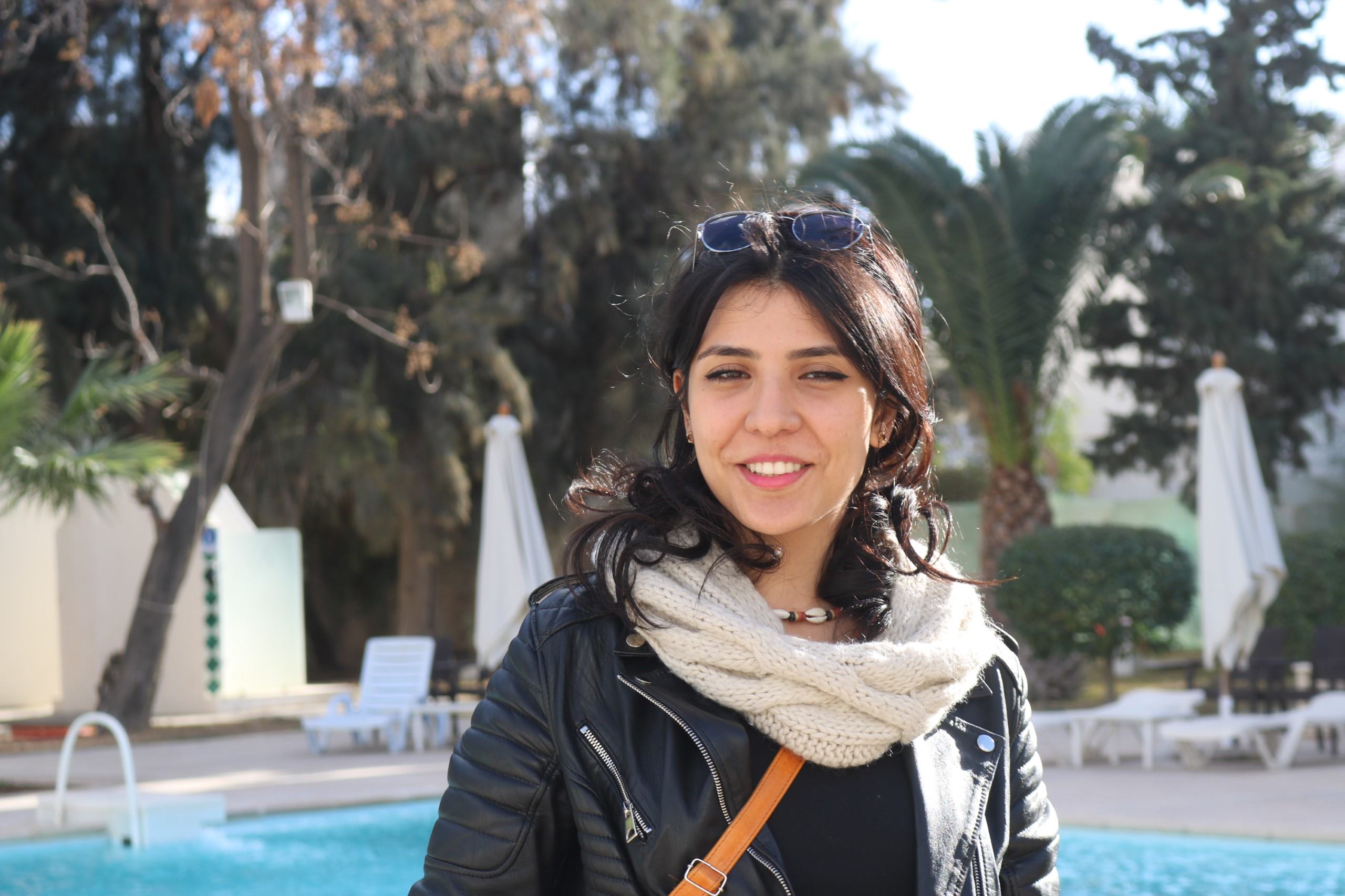
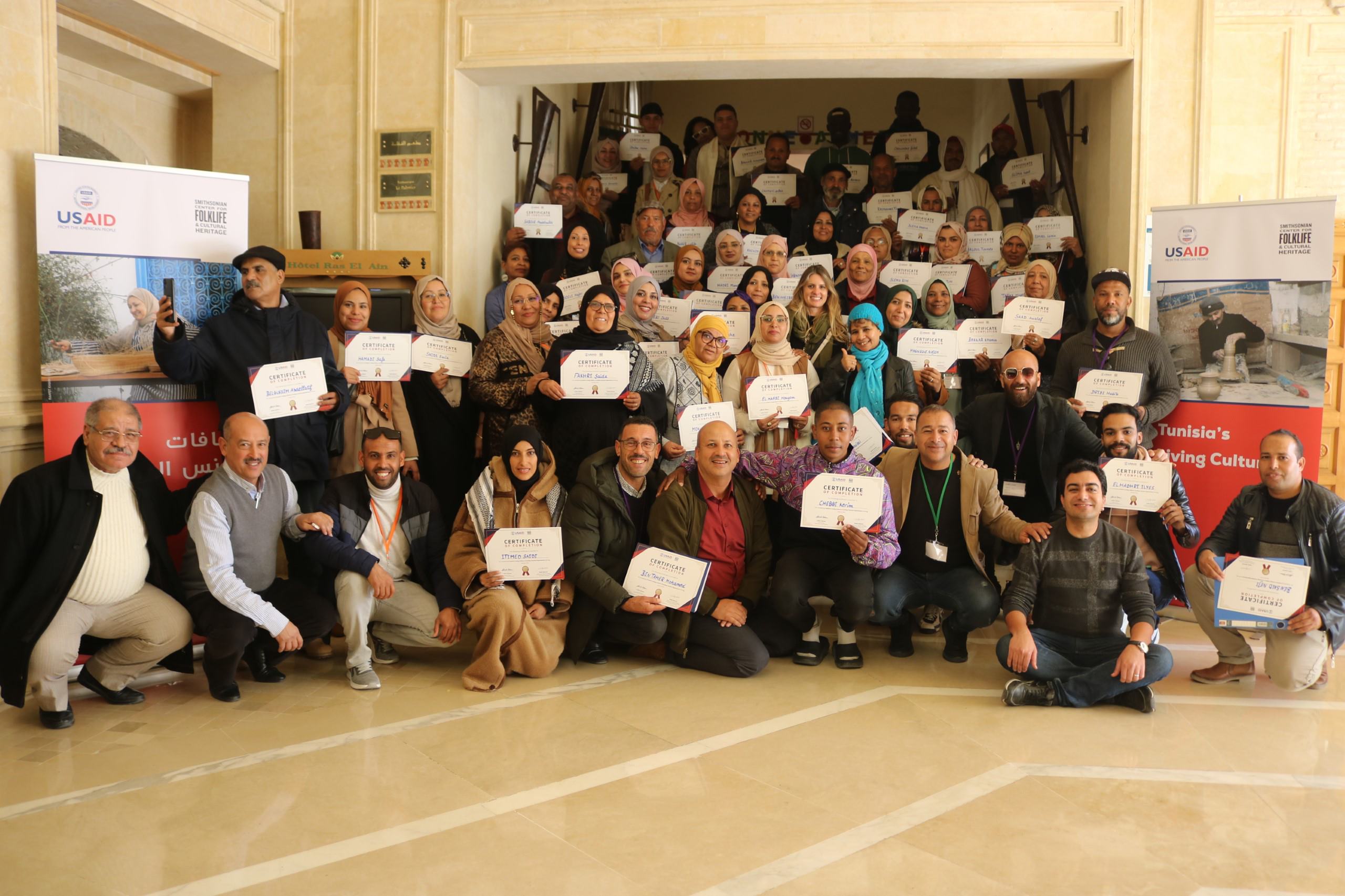
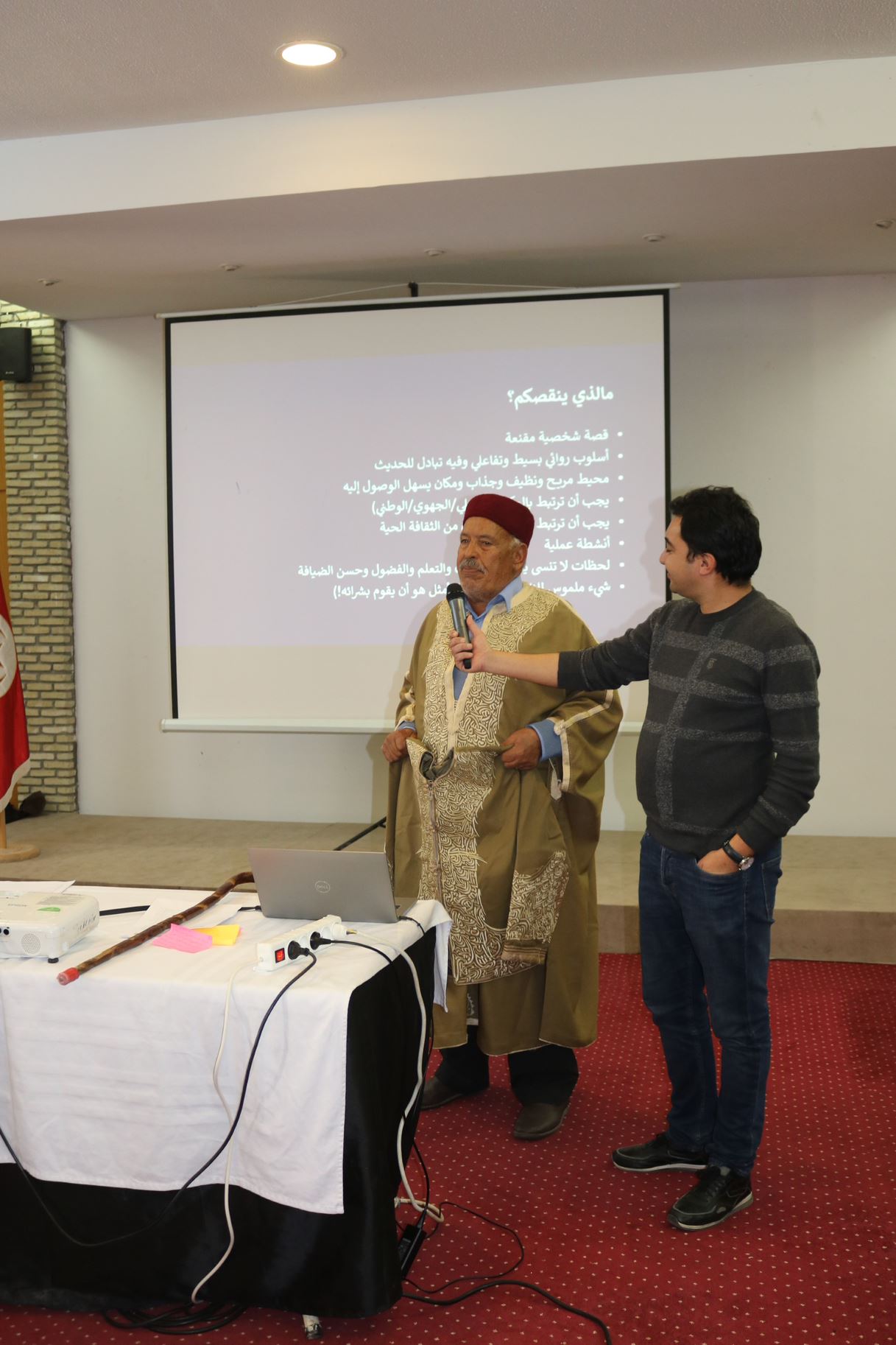
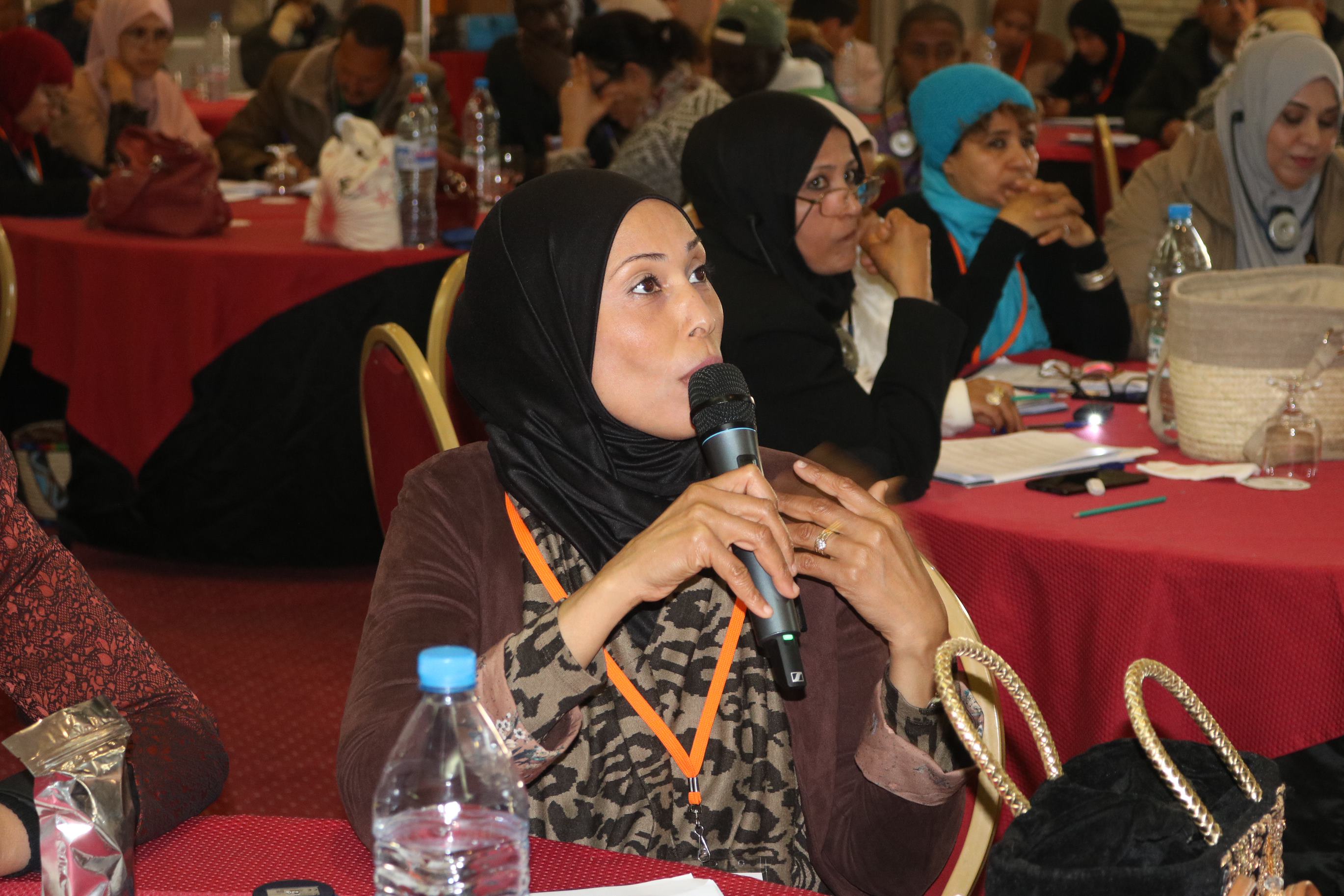
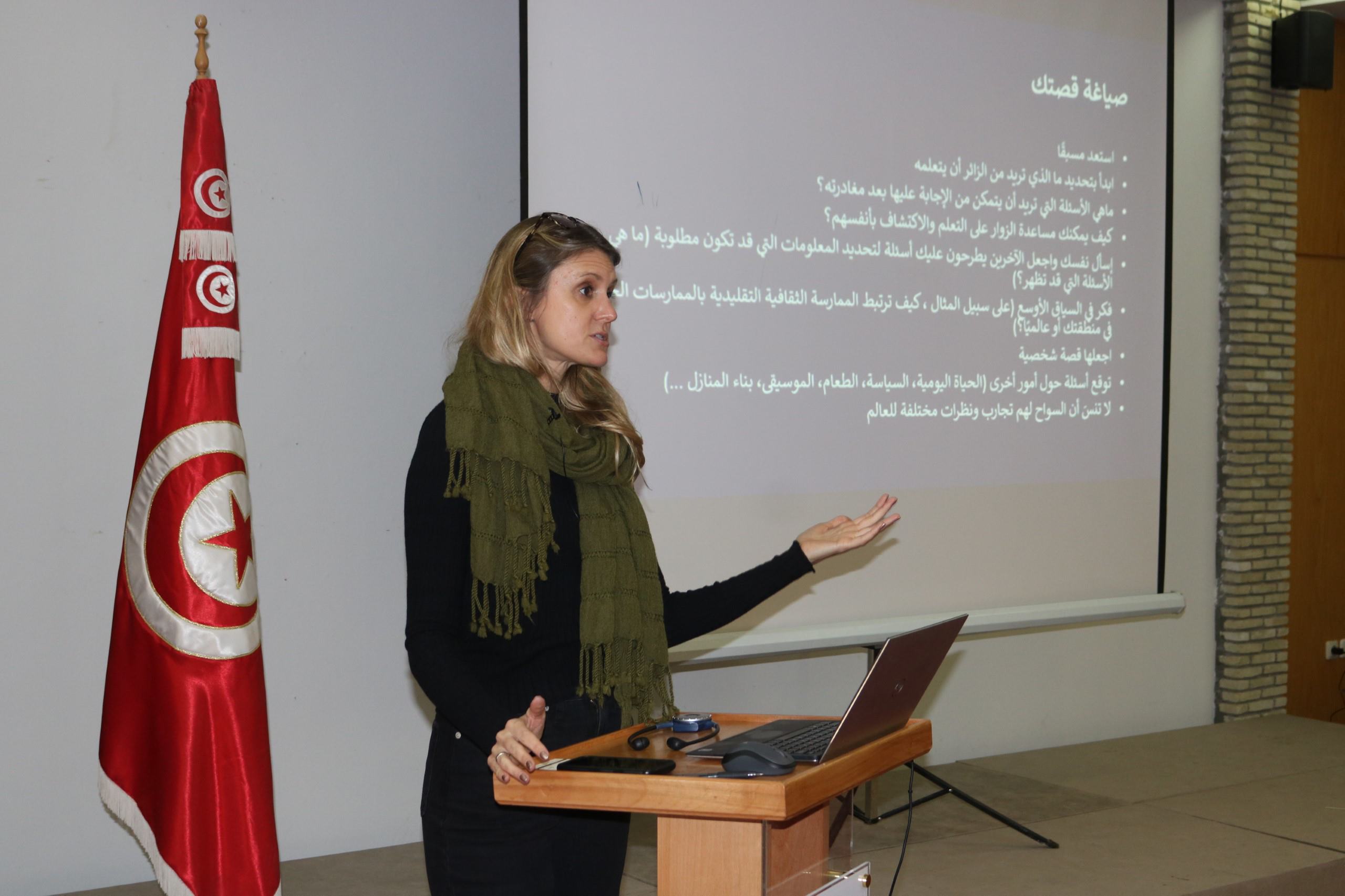
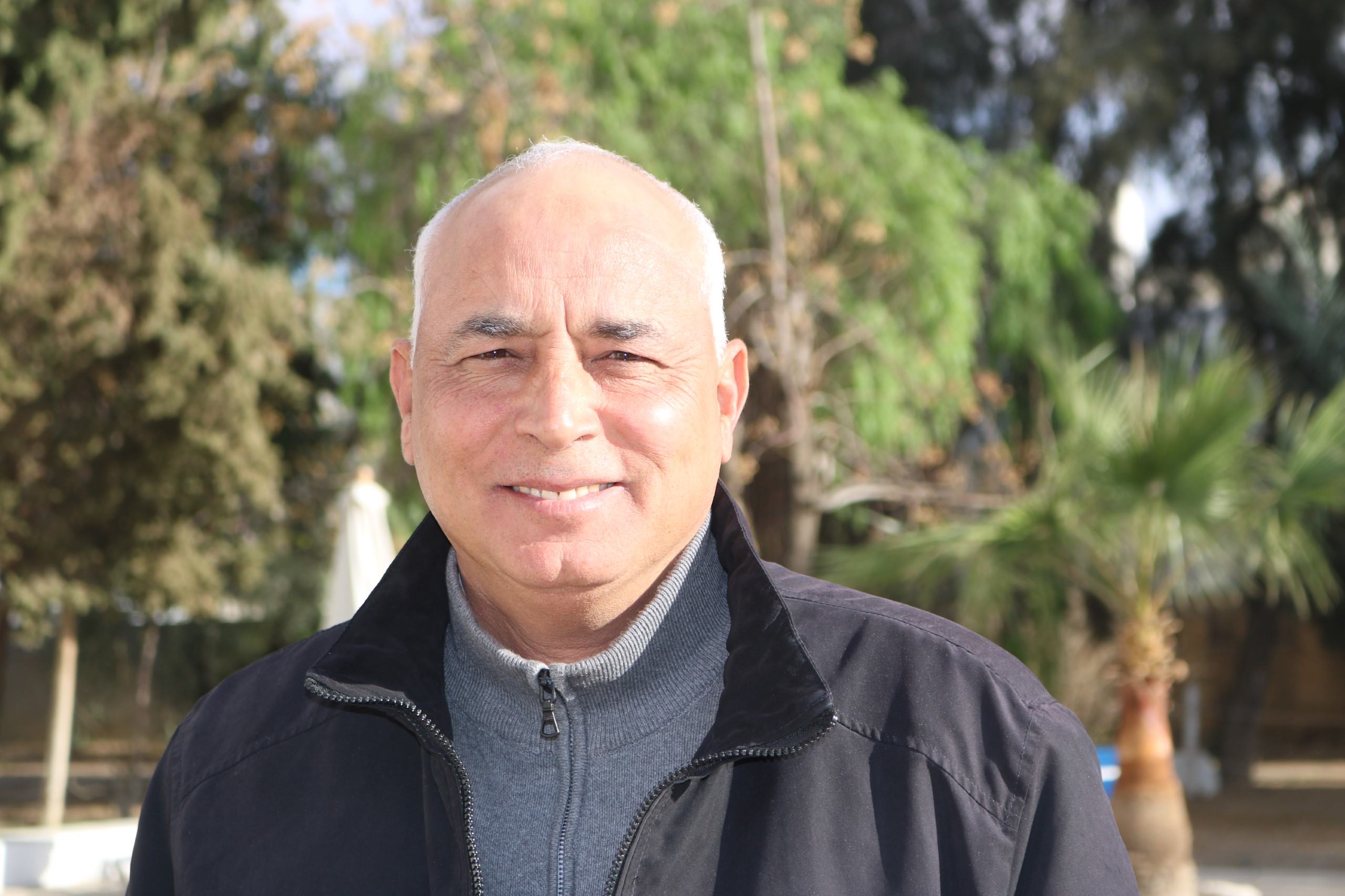
What’s Next: Intensive Market Readiness and Grant Support for 30 experiences
Thirty key experiences will be selected among the 280 initial experiences for intensive market readiness and small grant support. Five experiences will be selected in each of the six USAID priority destinations: Tozeur, Kebili, Gabes, Tataouine, Kairouan, Jendouba.
USAID Visit Tunisia Activity discussed eligibility criteria with the TLC Scientific Committee, which provides critical expertise on intangible cultural heritage. Eligible experiences must be in one of the six USAID priority destinations. USAID Visit Tunisia Activity and the TLC scientific committee will review concepts and conduct site visits for evaluation. In the evaluation, the team will consider factors like a compelling personal story; a simple, engaging, conversational storytelling style; a comfortable, clean, accessible, and visually appealing environment; connection to place and other types of living culture; hands on activities; memorable moments of laughter, learning, curiosity, and hospitality; and positive environmental impact.
Stay tuned for more on Tunisia’s Living Culture experiences to explore!
Tunisia’s Living Culture in the media spotlight
Tunisia’s Living Culture workshops on creating tourism experiences received media coverage on Tunisian outlets in Arabic. Listen to a radio interview conveyed to Tataouine FM, and national televisionfeaturing testimonials from the artisans and local key stakeholders.
For media and interview inquiries, please send an email to info@VisitTunisiaProject.org.
